Unschooling does not mean unlearning.
Get the facts on unschooling and see if it is right for your family.
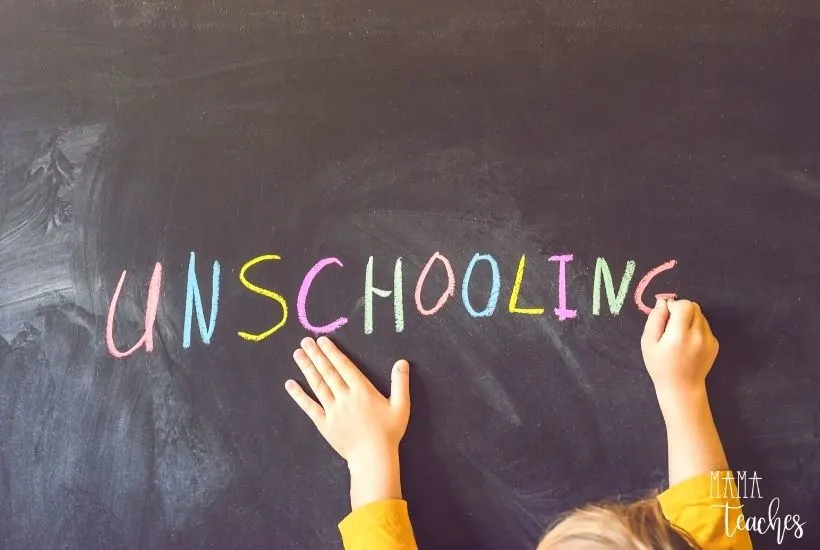
This article contains affiliate links to things that you might like.
Unschooling: What Is It?
Unschooling is a different educational approach.
It is child-led rather than teacher or parent-led.
The child follows his interests and passions, and, through that process, learning happens.
Unschooling emphasizes learning through life experiences.
For a young child that would include play, family interactions, and household chores.
For an older child, you would add work experience, travel, mentors, books, social interaction, and even some elective classes.
From Ants to Everything
Unschooling is curiosity-driven.
That curiosity naturally guides the child to investigate and learn all about his current interest.
For example, imagine a child starts watching an ant.
He follows it to see where it goes.
He examines the anthill and observes the interactions between the ants.
Let’s face it, he may even dig up the anthill to see what happens (and find the ant larvae inside).
Wanting to know more, the child asks his parent about ants.
He checks out books on ants.
Discovering that ants are social insects, he decides to learn about other social insects or animals that work as a group.
He writes a story about ants.
He may even purchase an ant farm and make notes about what changes each day.
How many ants are in anthill?
What about in the world?
How could he write a number that large?
In what biomes can ants exist?
He learns there are venomous ants.
What is that venom made of and how does it work?
Curiosity creates questions.
The child delights to find the answers, and, in the process, learning happens.
The unschooled child learns more than information; he learns how to learn.
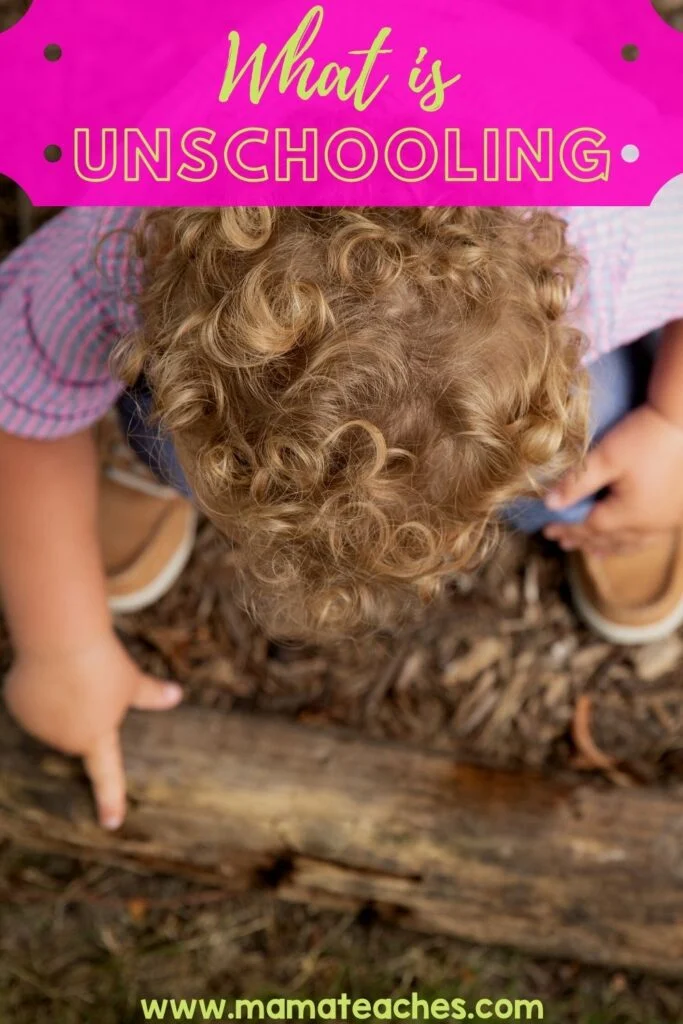
Benefits of Unschooling
There are several benefits to unschooling.
No Set Curricula
You don’t need to purchase grade-level textbooks and workbooks.
Your home is an immersive learning environment.
Stock the shelves with rich books.
Go outside whenever possible.
Look for teachable moments throughout the day, but don’t stress about covering certain concepts at prescribed times.
No Set Schedule
You don’t control when the child learns.
She is learning all the time!
Her learning is personalized, and she is motivated to discover.
You don’t need to be a taskmaster and constantly watch the clock.
You don’t need to nag.
No Grading
A child’s ability to learn cannot be reduced to a set of numbers.
So you get to skip it!
Learning with a Purpose
Why learn things that you will never put to use?
Unschooling prizes purposeful learning.
Prepare your child for the future by focusing on the skills of social interaction, discipline, and motivation.
Think Freely
Unschoolers are self-starters and world-changers.
They don’t blindly accept the status quo.
They think widely, freely, and out of the box.
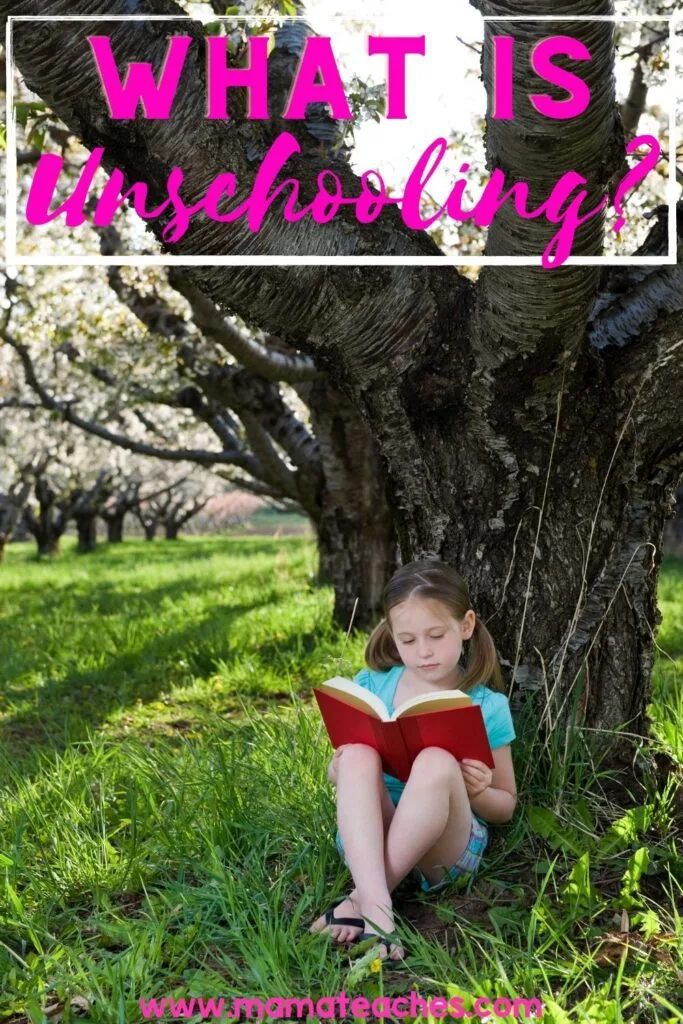
How to Get Started with Unschooling
Follow these simple steps to get started with unschooling.
Step 1: Check the Laws
Check with your local homeschooling office to find out the requirements for your state.
You may need to write a letter of intent, keep track of your homeschooling days, or keep a record of some of your child’s work.
Requirements vary by state, so find out before you begin.
Step 2: Do Your Reseach
Unschooling is a philosophy shift, so read some books that teach you how to do it well.
Step 3: Let Go of Your Ideas of School
We feel most comfortable repeating the patterns we know.
You may need to make a concerted effort to trust the process of unschooling.
If your child has been in a traditional school environment, he may need time to adjust to this new way of learning.
Step 4: Get to Know Your Child’s Interests
Learning is driven by curiosity and wonder, so find out what delights your child.
This conversation will give her an idea of where to begin to explore.
Remember, mentor your child; don’t dictate.
Let her lead the learning.
Step 5: Provide a Rich Learning Environment
Stock your house with books, games, tools, and supplies to facilitate learning and discovery.
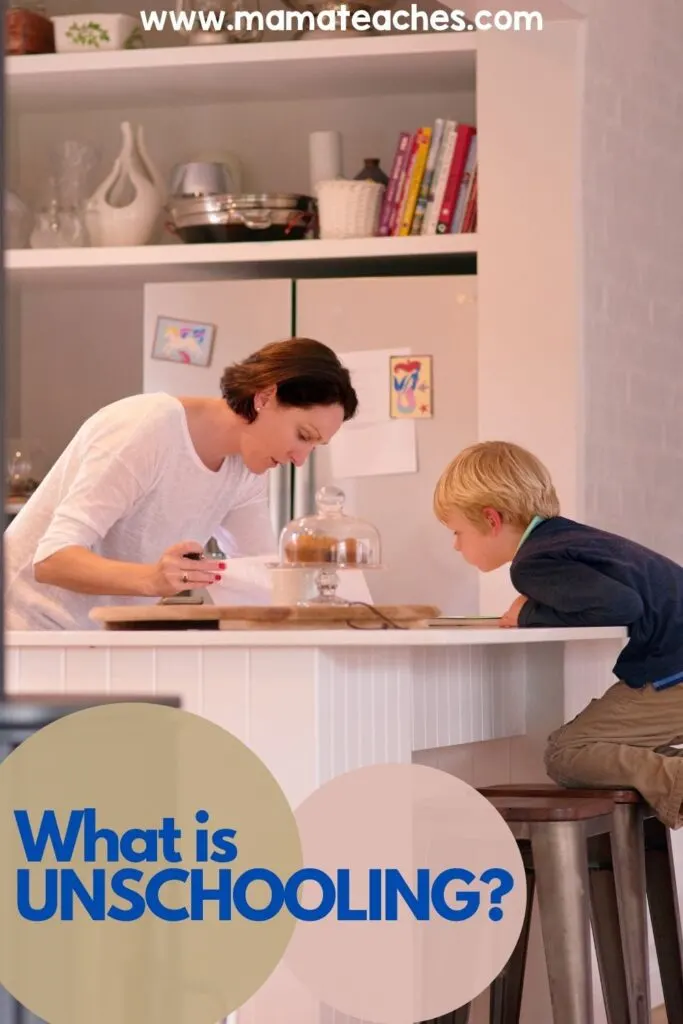
Tips for Starting Unschooling
Keep these things in mind as you begin unschooling:
Expect an Adjustment Period
When you begin unschooling, expect an adjustment period.
You are new to this, and (if your child has been in a traditional learning environment) so is your child.
It may feel awkward at the beginning.
You may think, “He isn’t learning anything.” Give it time.
Limit Screens
Unschooling is active learning; it is not passive.
TV and video games can be mental timeouts.
Though there are exceptions to this rule, you may want to limit your child’s time on devices to promote the skills of unschooling: social interaction, motivation, diligence, and discovery.
Do Not Compare
It is easy to panic when a child puts off learning to read.
Or when your older student shows zero interest in any form of math.
Stop thinking in terms of where your child “should be” and instead celebrate where he is.
Trust the process; he will learn when he is receptive.
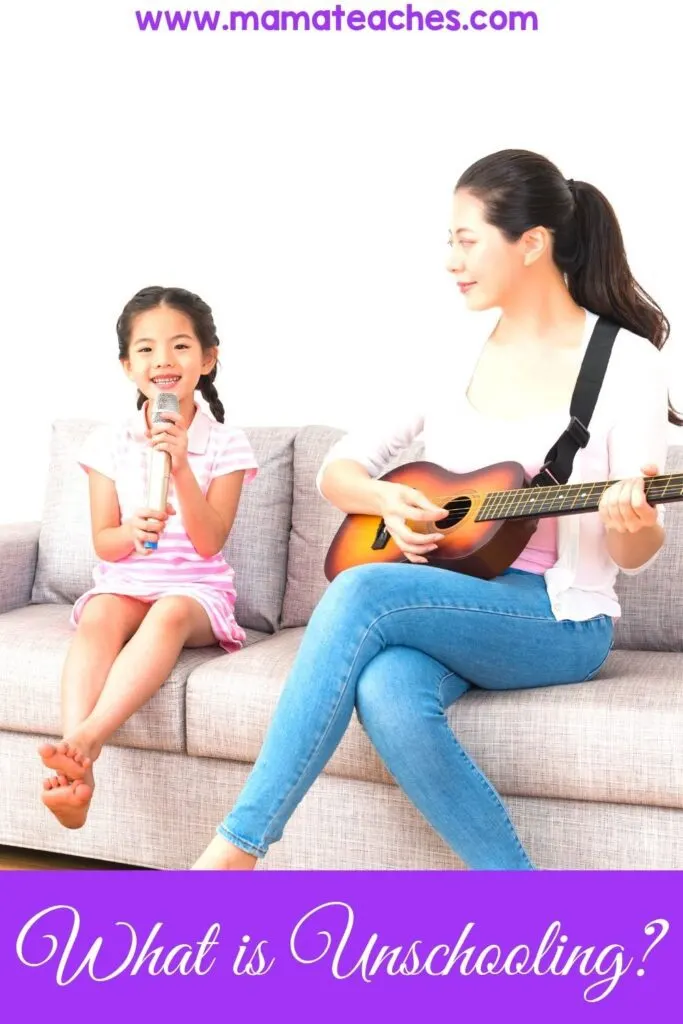
Helpful Unschooling Books
The informative books will get you in the unschooling mindset:
Unschooled: Raising Curious, Well-Educated Children Outside the Conventional Classroom by Kerry McDonald
This book provides a basic history of the unschooling movement, current research on self-directed education, and personal snapshots of innovators in the unschooling scene.
The Unschooling Handbook : How to Use the Whole World As Your Child’s Classroom by Mary Griffith
This book highlights ways to provide a stimulating learning environment where self-directed learners will thrive.
Raising Free People: Unschooling as Liberation and Healing Work by Akila S. Richards
Raising Free People acknowledges the generational trauma of conventional education.
The author promotes unschooling as a way to heal wounds and raise healthy, happy children.
Sandra Dodd’s Big Book of Unschooling by Sandra Dodd
This veretan unschooler gives advice generated through personal experience.
It will inspire you!
Unschooling Rules: 55 Ways to Unlearn What We Know About Schools and Rediscover Education by Clark Aldrich
These 55 rules will have you rethinking modern education!
Unschooling: What It Is and How to Do it
If traditional schooling isn’t working for your family and you are looking for something more natural and free, try unschooling.
Your child may surprise you with his creativity, wonder, diligence, and motivation!
